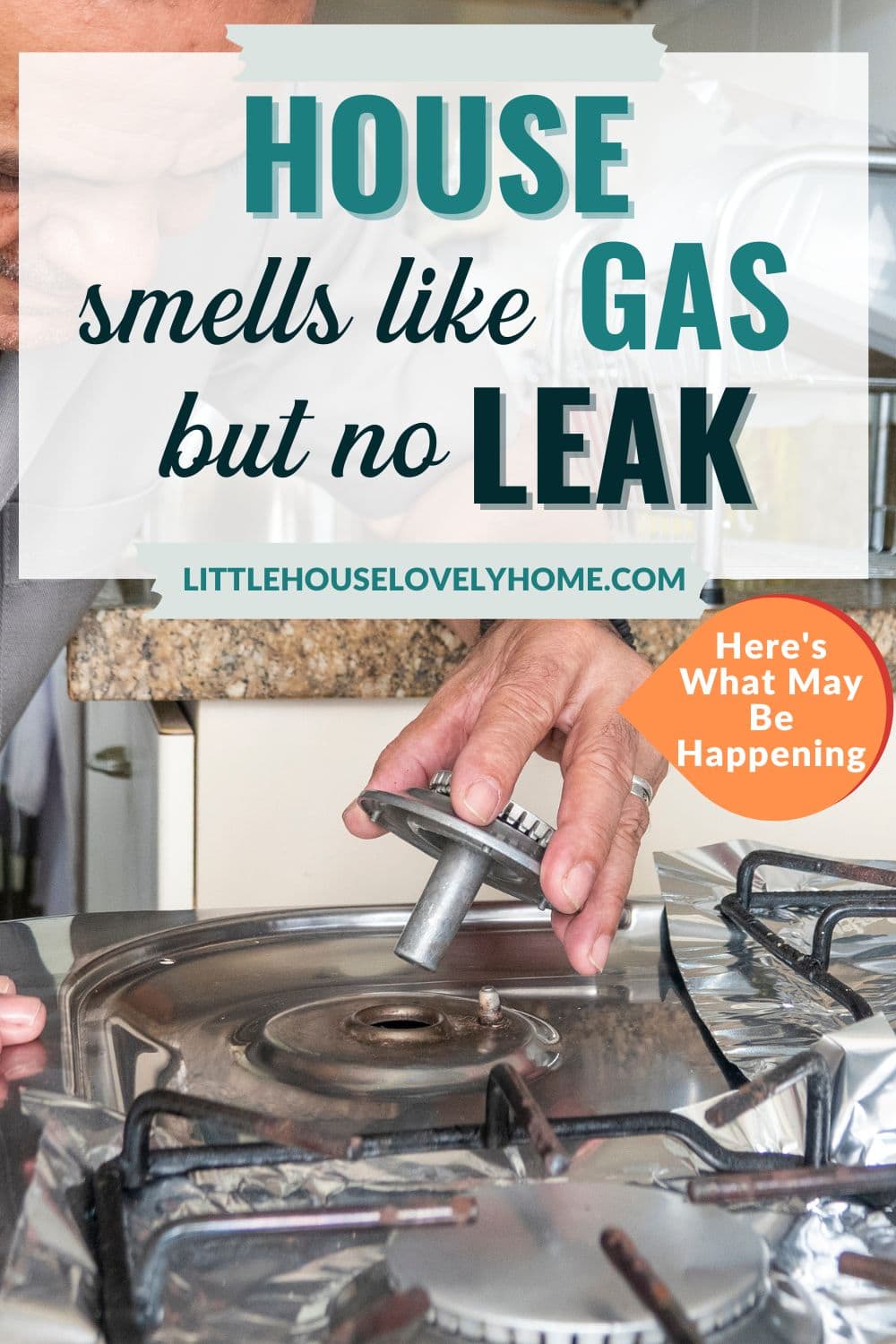You walk into your house after a long day of work, and you notice that it smells like gas. You don’t see any leaks, but the smell is definitely there. What should you do?
In this blog post, we will discuss what to do if your house smells like gas and you can’t identify the source.
We will share several potential causes of this problem and provide some tips on how to solve it.
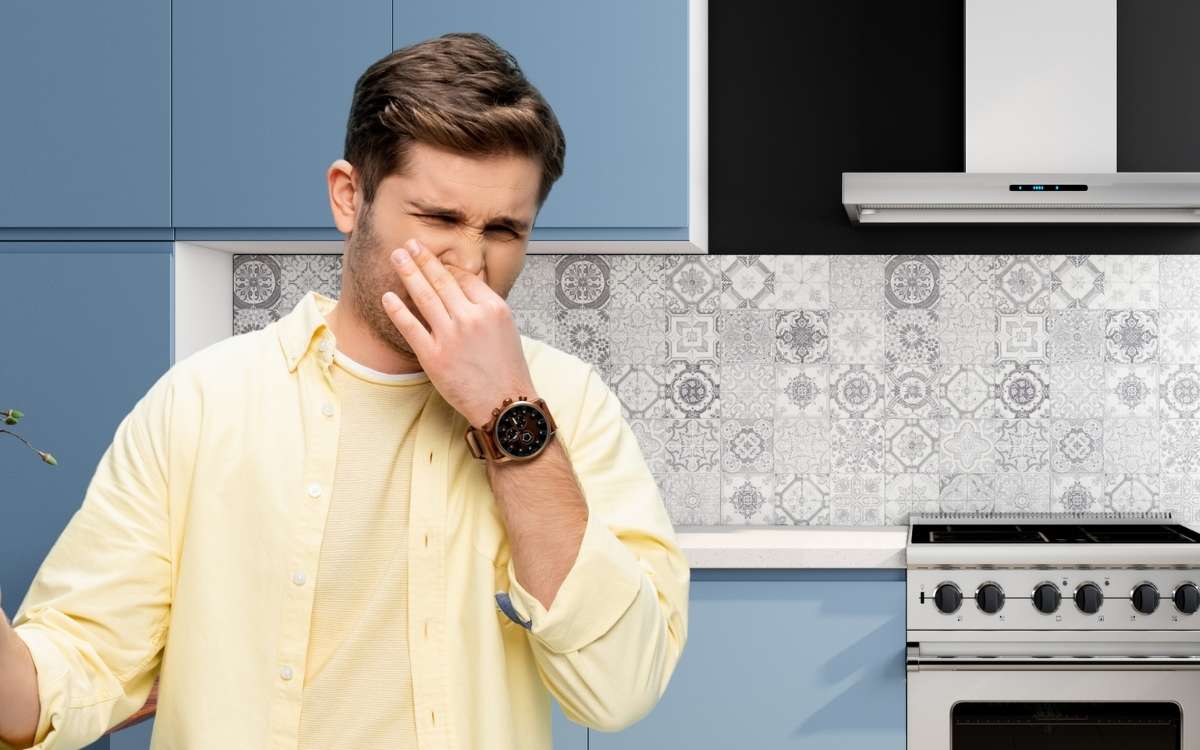
Table of Contents
What to Do When Your Home Smells Like Gas
Ventilate Your Home
The first step if you notice a gas smell in your home is to ventilate the area. Open all the windows and doors to get some fresh air flowing through the house.
If this is not possible, call a professional right away.
This will help to dissipate the gas and make it easier to identify the source of the leak.
Check for Leaks
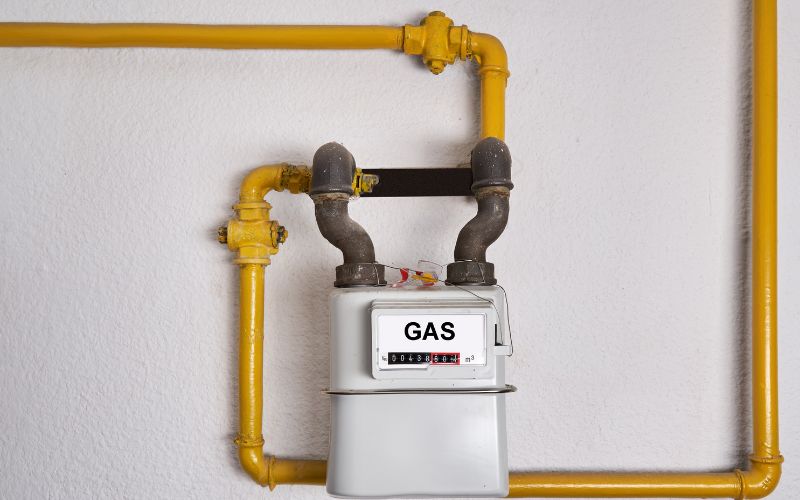
Once you have ventilated the area, check for any leaks. Turn off all gas lines in your home, then see if the smell is still present.
If it is, there may be a leak in your gas line. You’ll need to call a professional to come and fix the problem immediately.
Check Appliances
If you can’t identify any leaks, the next step is to check all of your appliances. Make sure that they are turned off and not leaking gas.
If you have a gas stove, be sure to check the connection between the stove and the gas line.
Leave the House (With Any Other Family Members or Pets)
If the gas smell is strong and there are others in the home, it’s best to leave the house.
This can be tricky if you have pets, but hopefully, you have a neighbor or a friend or family member you can call to come and help you.
Call the Gas Company
Once you have evacuated the house, call the gas company. They will be able to send someone out to check for leaks and make sure your home is safe.
Repair the Issue
Once the gas company has checked for leaks, they will be able to repair the issue and make sure your home is safe. Hopefully, the repairs will be minimal.
But if they are not, don’t hesitate to invest in them. The safety of your home and family is worth it!
Take Precautions in the Future
Once the issue has been resolved, take some precautions to prevent it from happening again. Make sure all appliances are properly maintained and that you know how to shut off the gas in your home.
Be sure to check for leaks regularly, just in case.
Why Does My Home Smell Like Gas If There’s No Leak?
It can be disorienting and downright scary to walk into your home and smell gas, especially if you can’t identify the source. But don’t worry, there are a few potential causes of this problem:
Your Neighbor May Have a Gas Leak
If you can smell gas but can’t identify the source, it’s possible that your neighbor has a gas leak. Call the gas company and ask them to check for leaks in the area.
If they find one, they will be able to repair it and hopefully prevent any further problems.
You may also want to talk directly with your neighbors to let them know what’s going on. They may not be aware of the problem and will appreciate the heads up.
There May Be a Problem with Your Appliances
Another potential cause of a gas smell in your home is a problem with one of your appliances. If you have a gas stove, for example, the connection between the stove and the gas line may be loose.
This can cause gas to leak into your home.
Be sure to check all of your appliances and make sure they are properly connected and turned off. If you’re still having problems, call a professional to take a look.
There May Be a Sewage Drain Issue
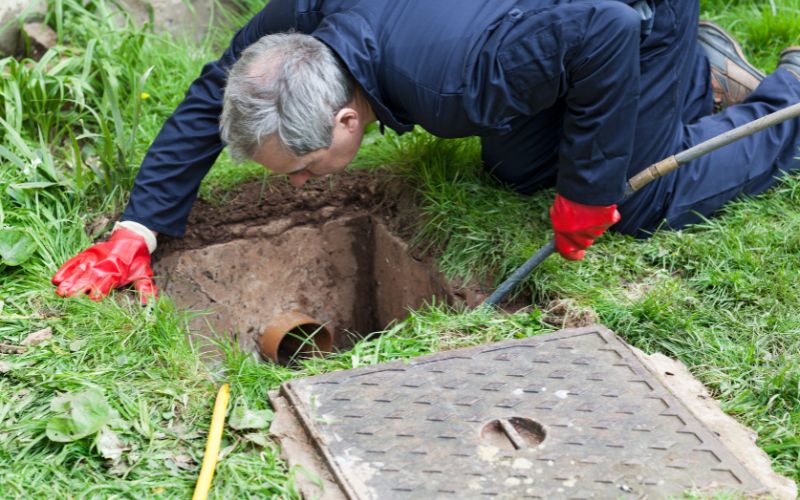
If you notice a gas smell when you walk into your home, but it’s not as strong in other parts of the house, there may be a problem with your sewage drains.
When sewage drains are not properly ventilated, they can release gases into your home.
This odor is very similar to the smell of natural gas. If you suspect this is the problem, call a landlord, the city, or a professional to help assess the issue.
You May Have Bacteria in Your Heating System
If you have a furnace, the problem may be with your heating system. Bacteria can sometimes grow in the unit and release sulfuric gas. This gas is very similar to the smell of natural gas.
Bacteria in a Well System
Those living on a rural property that gets their water from a well may also be experiencing the smell of sulfur due to bacteria. This is more common in the summer months when the water is warmer.
If you think this might be the problem, have your water tested by a professional. They will be able to identify any bacteria and recommend a course of treatment.
A Garbage Chute Blockage
If you live in an apartment building, the problem may be with the garbage chute. If it’s blocked, garbage can build up and release sulphuric gas.
This gas is very similar to the smell of natural gas. If you think this might be the problem, call your landlord or the city to have them come and check it out.
What Smells Like Gas but Isn’t Gas?
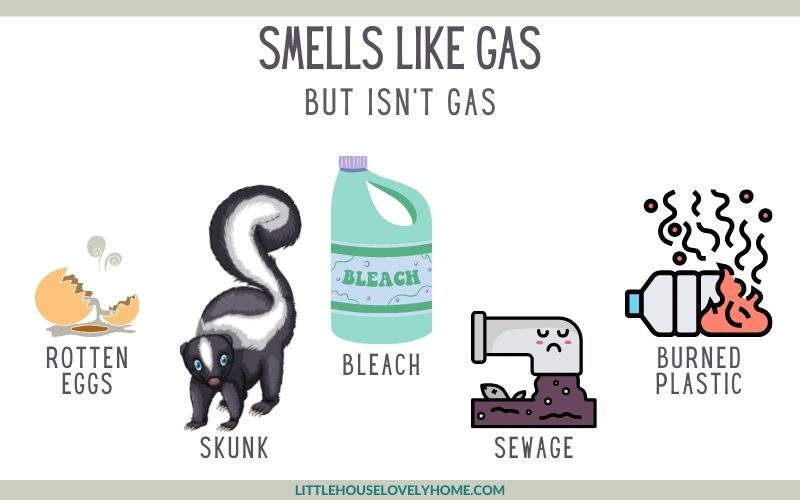
Another way to rule out a gas leak and identify the smell is by knowing what other things smell similar to gas. Here are some of the most common culprits if you don’t have a leak:
Rotten Eggs
If you’ve eaten eggs recently and some leftovers have made it into the trash bin, the smell may be coming from there. Be sure to check the bin and remove any egg-smelling items.
It may also smell like gas if someone has cooked eggs recently in the home.
A Skunk
If you live in an area with skunks, one may have made its way into your home. This is more common in the spring when they are looking for a mate.
If you think this might be the problem, check around your property for signs of a skunk. If you find one, call animal control to have it removed.
Bleach
If you’ve recently used bleach or another cleaning product with a strong smell, the fumes may be what you’re smelling. These fumes can linger for days, so if you think this might be the problem, open some windows and let fresh air in.
Sewage
As mentioned before, a sewage issue can sometimes cause a gas smell. If you think this might be the problem, call your landlord or the city to have them come and check it out.
Burned Plastic
Burnt plastic can have a similar smell to gas. If you think this might be the problem, check around your home for any signs of burning plastic.
This could be something as simple as an electrical cord that is touching a hot surface.
When plastic burns, it releases harmful chemicals into the air. If you find burned plastic, be sure to remove it and ventilate the area.
How Can I Tell if There Is a Natural Gas Leak in My House?
Here are some of the symptoms of a natural gas leak:
- You can hear a hissing or whistling sound near a natural gas line.
- You see dirt or water being blown into the air near a natural gas line.
- There’s an odor of rotten eggs near a natural gas line.
- Your house plants are dying or wilting.
- Your gas usage has increased.
- Air bubbles can be found in standing water.
If you notice any of these symptoms, leave the area immediately and call the gas company. Do not attempt to repair the leak yourself.
Will Carbon Monoxide Detector Detect Gas Leak?
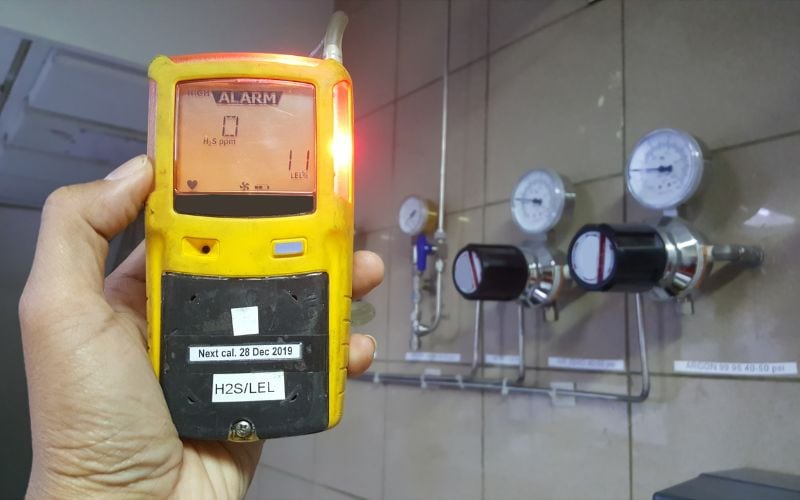
No, a Carbon Monoxide Detector isn’t designed to detect gas leaks. However, it will detect carbon monoxide (CO), which is a byproduct of combustion.
If you have a natural gas leak and your furnace is running, you may be at risk for CO poisoning.
It’s important to have a CO detector in your home and to know the symptoms of CO poisoning. These include headache, dizziness, nausea, and confusion.
If you think you may be experiencing these symptoms, leave the house immediately and call 911.
As for detecting carbon monoxide, you can buy a CO detector at most hardware stores. Be sure to follow the manufacturer’s instructions for proper installation and maintenance.
Why Do I Smell Gas but No One Else Does?
Sometimes, people can smell gas but no one else can. This is because our sense of smell is different from everyone else’s.
Some people are more sensitive to smells than others. If you think there might be a gas leak, it’s always best to err on the side of caution and call the gas company.
There is also phantosmia, which is when you smell things that aren’t actually there. This can be caused by a variety of things, including:
- Certain medications
- Brain tumors
- Epilepsy
- Head injuries
- Migraines
- Parkinson’s disease
If you’re experiencing phantom smells, it’s best to see a doctor to rule out any underlying medical conditions.
The Bottom Line
It can be frightening when you smell gas but can’t find the source. However, there are a few possible explanations.
If you’re still concerned, call the gas company or your landlord to have them come and check it out. And be sure to install a carbon monoxide detector in your home for peace of mind.
We hope that these tips can help your family feel safe and comfortable in your home.
Have you ever had a gas leak in your home? What did you do? Share your story in the comments below!


